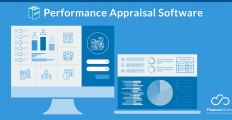Imagine getting a computer virus attack while you’re working on a tight deadline. Your laptop screen goes black right before your eyes. In a split second, everything you have worked on for the last two weeks is all gone.
A virus attack on a personal computer is a nightmare for anyone, from the CEO with sensitive files in his or her laptop to the independent professionals and freelancers who depend on their computers to make money. There are direct and indirect costs that you will have to bear when a virus strikes your laptop.
Let’s see how they add up.
Virus attack cost no. 1: Hiring an expert can cost a lot of money
For many of us who know nada about the inner workings of a computer, the easiest way to restore things would be to call an expert. But expert help can be costly.
First off, getting a computer technician to check your laptop and find out the problem already costs money. Some repair shops may give you a free assessment, but others charge a minimum of $35 for a diagnostic charge.
Further, once the technician knows what the problem is, the repair is often charged by the hour, with rates usually from $50 to $70. If it takes your repairman six hours to get everything in order, that translates to at least $300—and that’s only the technician’s fees.
Rates are cheaper if you’re able to bring your infected laptop to the computer shop, but getting a technician come over on site can run up your tab by an additional $10 an hour. Some technicians also charge an additional call-out or travel fee, anywhere from $35 to $60, depending on how far away your location is from your computer repair store. Getting remote assistance is even more expensive, with some computer shops charging at least $70 per hour for accessing your laptop remotely and fixing it from there.
Cost: Anywhere from $100 for a quick fix, to more than $300 for total repair.
Tip: Installing a paid antivirus program in your computer may cost you anywhere from $40 a year to a one-time charge of $90, but this expense will surely you save a lot of money that you may need to fix an already infected laptop, as well as spare you the added stress.
Virus attack cost no. 2: You’ll have to pay for new programs
If your technician is able to restore everything without the need for a new operating system or new parts, good for you. In a worst-case scenario, you’ll have to shell out more than $80 for a new operating system; around $139.99 to as much as $399.99 for a Microsoft Office package with Word, Excel, PowerPoint, and OneNote (or free—if you prefer open-source applications); as well a new virus program to protect you against future virus infections.
McAfee’s Total Protection virus program starts at $89.99, and its Advanced Troubleshooting program can cost as much as $129.95, while basic virus protection at Norton costs $39.99 a year for one computer.
For scenarios 1 and 2, you may need emergency cash to tide you over to the next payday. In case you need a loan now, you can check the tips here for loan options. Your goal is to fix your computer asap; paying for an extra interest may be worth it than waiting for the next payday to get rid of the virus.
Cost: Anywhere from $260 for all basic applications to as much as $560 for top-of-the-line programs.
Tip: Be mindful of the sites you visit and the files you download. Likewise, considering how expensive it can get to purchase and install office applications all over again when your laptop gets infected with a virus, it really does make sense to get an antivirus program to begin with or be a little more alert when downloading programs or files to your computer. If you’re not yet ready to purchase an antivirus full version, you can download a freeware or trial version. The sooner you got your antivirus running the safer for your laptop.
Virus attack cost no. 3: Borrowing—or renting—a laptop to tide you over
Or help you get things done while you wait for the repair to complete. If you’re working on a tight deadline and need a backup computer, you can choose to rent one, but it won’t come cheap. According to a Wall Street Journal article, computer rental can go from $149 to as much as $165 for three days’ use.
Cost: About $200 for a week’s use—which would probably be the same length of time it would take to get your virus-infected laptop repaired.
Tip: Even if your network is secure you can’t guarantee what your co-workers are downloading. Secure your laptop by installing a virus program or by running a regular virus check on your to ensure that your laptop is in tiptop shape.
More than the cost of repair, installation of operating systems and programs, or laptop rental, being the victim of a virus attack also has its indirect costs:
Virus attack cost no. 4: Lost files and wasted efforts
If you’re unfortunate enough to see a virus attack through, you probably know the feeling of having lost gigabytes of data in your computer and knowing you’ll never get them all back: that “Great American Novel” you’ve been working on for years, photos from last year’s skiing trip (especially some of the ones that weren’t wholesome enough to be uploaded on Facebook), and yes, even your ongoing project that you’ve been working on for several weeks now, which you unfortunately forgot to back up somewhere—all gone in a blink. If you’re able to save some of your important files, well and good, but when it comes to virus attacks, be prepared for the worst.
Tip: Save your files in the cloud. Google Drive is free and recommended especially for text and spread sheet files. The cloud allows you to retrieve your files anywhere and even when your laptop is down. If you have image or video files, an external hard disk may be appropriate. Make sure to run a virus check every time you transfer files from the hard disk to your laptop. Likewise, imagine how a small thing like running a monthly virus check on your laptop can spare you from the nightmare of losing all your files and having to start from scratch all over again.
Virus attack cost no. 5: Losing a client or missing out on a prospect
When a virus strikes your PC, naturally, your top priority would be to get it fixed, so all other things in your professional life will have to be on a standstill. But what if you’re dealing with a demanding client who requires that you’re online nine hours a day or be on call any time in a week? It can mean a missed opportunity for a new project, or worse, losing a client altogether.
Not many people see the importance of getting their laptops protected from viruses until something huge—like losing a client because you weren’t able to save a virus-infected file—happens. Regret shouldn’t happen in the end, so have the foresight to prepare yourself (and your computer) for possible virus attacks. Get an antivirus program and do a regular check to keep your laptop virus-free.
Tip: Consider buying a backup computer or laptop if you’re dealing with big projects. The cost of another laptop is peanuts compared to losing an all-important client.
Virus attack cost no. 6: Stress and panic
For an independent professional whose sole resource in making money is a laptop, getting a virus attack can be a very stressful experience. Everything else will have to be forgotten, as computer repair will have to take main priority.
You’re in a panic because your project is due any day now, and you can’t buy enough time to complete it. What to do when you don’t have a spare computer or extra cash to pay a technician? What if you don’t have the money to pay for the new programs and operating system that you’ll need to restore your laptop to what it once was? What if you can’t afford to rent a laptop while waiting for your computer to be repaired? All these can add up to a lot of stress, which can stand in the way of decision making.
Tip: Enable the alert setting on your OS when installing, downloading or opening a document from the Internet. This keeps you from accidentally opening an infected file.
How can you detect and prevent a virus attack on your computer?
Detecting and preventing a virus attack is crucial to safeguarding your computer from potential damage. Here are key strategies to help protect your system:
- Install Anti-Virus and Anti-Malware Software: The first line of defense uses robust anti-virus and anti-malware software. Programs like Norton, McAfee, and Bitdefender are popular choices, and they help detect known threats, block suspicious files, and provide real-time protection.
- Enable Firewall Protection: A firewall is a barrier between your computer and external threats. By controlling the traffic between your device and the internet, firewalls prevent unauthorized access, which can help mitigate the risk of attacks.
- Regular Software Updates: Virus attacks often exploit vulnerabilities in outdated software. Ensuring your operating system, browsers, and all applications are up-to-date with the latest security patches can minimize potential entry points for malicious software.
- Avoid Clicking on Suspicious Links or Attachments: Phishing scams often deliver viruses via email attachments or links. Avoid clicking on the sender or the link if you’re uncertain about it. Only open attachments from trusted sources, and always double-check before engaging with unfamiliar emails.
- Use Strong Passwords and Multi-factor Authentication: Weak passwords make it easier for cybercriminals to breach your system. Use strong, unique passwords, and enable multi-factor authentication for an added layer of security.
- Backup Your Data: Regular backups can prevent data loss in the event of a virus attack. If a virus compromises your system, you can restore your data without much hassle, reducing the attack’s impact.
- Monitor Your System Regularly: Check your computer for signs of a virus, such as unusual system behavior, slow performance, or unexpected pop-ups. Running periodic scans with your anti-virus software ensures early detection and reduces the risk of a significant breach.
CONCLUSION
Nobody wishes to fall prey to a virus attack. That’s why many of us have the foresight to buy top-of-the-line virus programs to protect our computers, make it a regular habit to backup our files, and go the extra mile of investing in an extra laptop or desktop PC for emergencies. Often, the extra measures we take to ensure we’re protected from a virus attack are much cheaper than the costs we’ll have to bear to fix an infected laptop.
WHAT’S THE WORST EXPERIENCE YOU HAD WITH A VIRUS ATTACK?
Key Insights
- High Financial Costs: Virus attacks can lead to significant financial expenses, including technician fees, new software purchases, and potentially even renting or borrowing a laptop while repairs are underway.
- Importance of Antivirus Software: Investing in reliable antivirus software can save substantial costs and stress associated with virus attacks by preventing infections before they occur.
- Data Loss Risks: One of the most severe impacts of a virus attack is the potential loss of valuable data, which can include important work files, personal documents, and irreplaceable photos.
- Backup Necessity: Regularly backing up data to the cloud or an external hard drive is crucial to ensure that important files can be recovered in case of a virus attack.
- Indirect Costs: Beyond direct financial losses, virus attacks can result in lost clients, missed business opportunities, and significant stress and disruption to work.
- Proactive Measures: Regular virus checks, cautious downloading practices, and maintaining up-to-date security measures are essential proactive steps to mitigate the risk of virus infections.
FAQ
- What are the primary costs associated with a virus attack on a laptop?
The primary costs include hiring a technician, purchasing new software, potentially renting or borrowing a laptop, and dealing with data loss and associated stress. - How much can it cost to hire a technician to fix a virus-infected laptop?
The cost can range from $100 for a quick fix to over $300 for a comprehensive repair, depending on the severity of the infection and the technician’s rates. - Why is antivirus software important?
Antivirus software is crucial because it helps prevent virus infections, saving you from the high costs and stress associated with repairing an infected laptop. - What should I do to protect my data from virus attacks?
Regularly back up your data to the cloud or an external hard drive and ensure you have reliable antivirus software installed. Perform regular virus checks and be cautious when downloading files. - What indirect costs can result from a virus attack?
Indirect costs can include lost clients, missed business opportunities, and significant stress and disruption to your work and personal life. - Can renting a laptop be a viable solution during a virus attack repair?
Yes, renting a laptop can be a temporary solution to continue working while your laptop is being repaired, though it can be costly, averaging around $200 for a week’s use. - How can I minimize the risk of a virus attack?
Minimize the risk by installing and regularly updating antivirus software, being cautious about the websites you visit and the files you download, and performing regular virus checks. - What are some preventive measures to protect my laptop from viruses?
Preventive measures include keeping your operating system and software up to date, using antivirus software, backing up data regularly, and being cautious with downloads and email attachments. - Is it worth investing in a backup computer?
Yes, investing in a backup computer can be worthwhile, especially if you handle critical projects and cannot afford downtime due to a virus attack on your primary laptop. - What can I do if my laptop is infected and I need to meet a deadline?
Consider borrowing or renting a laptop to meet your deadline while your infected laptop is being repaired. Ensure you have backups of your work files to continue working seamlessly.
























That first given email address is now defunct. Currently going through waves of shock, disgust, frustration, lack of sleep,losing perspective, denial over being hacked. Attempting to remain strong but feel beaten down. This could almost be classified as post traumatic stress syndrome. Thank you for the article-it's helped somewhat
Leave a comment!